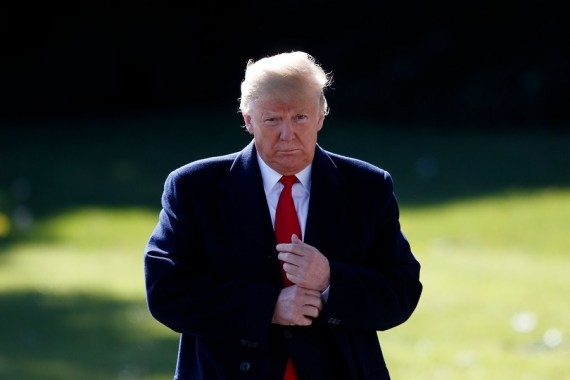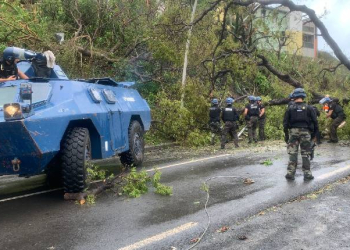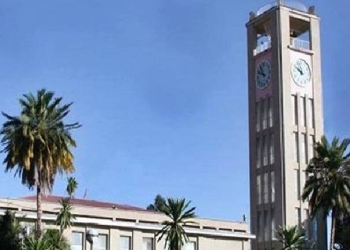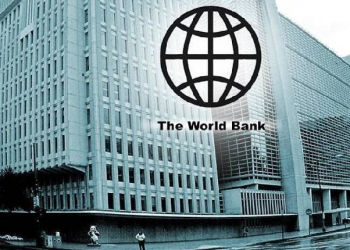Washington: US Magistrate Judge Bruce Reinhart, who signed the warrant for the August 6 FBI raid at former President Donald Trump’s Florida home, indicated on Monday that the Department of Justice (DoJ) may yet convince him that very little information from the affidavit behind the warrant should be released.
He ruled that he was “balancing the government’s asserted compelling need for sealing against the public’s interest in disclosure”, the Washington Examiner reported on Monday furbishing a copy of the affidavit.
Reinhart said in court that he believes there are portions that can be unsealed and ordered the government to file proposed redactions.
“Allowing access to the unredacted affidavit would not impair court functions,” Reinhart said on Monday.
“Having carefully reviewed the affidavit before signing the warrant, I was — and am — satisfied that the facts sworn by the affiant are reliable. So, releasing the affidavit to the public would not cause false information to be disseminated.”
The DoJ had announced last week its opposition to the release of the underlying justification for the search, just days after it agreed to unseal the FBI warrant for the search of Trump’s Florida resort, Mar-a-Lago.
Trump had been asking for unsealing an unredacted version of the FBI warrant as also appointing a third party, which is neutral, to review the unsealed documents. But he filed no motion through his lawyers on this.
Reinhart said in his ruling on Monday: “It is a foundational principle of American law that judicial proceedings should be open to the public. An individual’s right to access judicial records may arise from the common law, the First Amendment, or both.”
He added: “Despite the First Amendment right of access, a document can be sealed if there is a compelling governmental interest.”
The judge said “protecting the integrity and secrecy of an ongoing criminal investigation is a well-recognised compelling governmental interest”.
Reinhart said that “there is significant likelihood that unsealing the affidavit would harm legitimate privacy interests” by disclosing the identity of the FBI agent who wrote it “as well as providing evidence that could be used to identify witnesses” and that “these disclosures could then impede the ongoing investigation through obstruction of justice and witness intimidation or retaliation”.
Reinhart said in his ruling, “I cannot say at this point that partial redactions will be so extensive that they will result in a meaningless disclosure, but I may ultimately reach that conclusion after hearing further from the government.
“The government argues that even requiring it to redact portions of the affidavit that could not reveal agent identities or investigative sources and methods imposes an undue burden on its resources and sets a precedent that could be disruptive and burdensome in future cases. I do not need to reach the question of whether, in some other cases, these concerns could justify denying public access; they very well might.”
In an 11-page opinion in an earlier court hearing, the judge had said that he may partially unseal the affidavit itself, ordering the DoJ to file a redacted version of the raid affidavit.
He had suggested that he may allow the DoJ to keep the FBI affidavit behind its Mar-a-Lago raid mostly sealed, though he rejected DoJ’s arguments that the justification underpinning the “unprecedented search” should be kept fully hidden.
The DoJ has sought to keep the affidavit justifying the search hidden. But Reinhart added: “Particularly given the intense public and historical interest in an unprecedented search of a former President’s residence, the government has not yet shown that these administrative concerns are sufficient to justify sealing. I therefore reject the government’s argument that the present record justifies keeping the entire affidavit under seal.”
Reinhart said a number of outside groups including the conservative advocacy group Judicial Watch and a host of media outlets including the New York Times, the Washington Post, and an agency had intervened to attempt to unseal the affidavit, while the DoJ “opposes the request to unseal”.
Reinhart noted that “neither Trump nor anyone else purporting to be the owner of the premises” at Mar-a-Lago has filed any motion taking a position on unsealing the affidavit.
Reinhart had ordered a few documents released in redacted form last Thursday. The search warrant application cover sheet, originally filed on August 5 and ordered unsealed, provided more details on what the Justice Department was looking for.
The records show that Trump was being investigated under 18 U.S.C. 793 (part of the Espionage Act), stating that it was related to “willful retention of national defence information”.
The unsealed cover sheet pointed to 18 U.S.C. 2071, specifically the “concealment or removal of government records”, as well as 18 U.S.C. 1519, specifically related to “obstruction of federal investigation”, the Washington Examiner said in a report.
Reinhart said he also agreed with the DoJ that the sealed affidavit contains information about sources and methods which, if disclosed, “would detrimentally affect this investigation and future investigations”.
He also said the affidavit describes physical aspects of Mar-a-Lago, which “could affect the secret service’s ability to carry out its protective function”.
But, he observed, “unsealing the affidavit would promote public understanding of historically significant events” and that “this factor weighs in favour of disclosure”.
Reinhart also referenced the numerous anonymous leaked stories about the Mar-a-Lago search.
“No one disputes that there has been much public discourse about this warrant and the related investigation,” he noted, adding, “Nevertheless, much of the information being discussed is based on anonymous sources, speculation, or hearsay; the government has not confirmed its accuracy.”
The items seized by the FBI earlier this month allegedly included “various classified/[top secret]/[sensitive compartmented information] documents,” four “miscellaneous top secret documents”, three “miscellaneous secret documents”, two “miscellaneous confidential documents”, and one “confidential document”.
Trump and his allies have claimed that he declassified the records, with the former President contending that he had a “standing order” throughout his presidency that “documents removed from the Oval Office and taken to the residence were deemed to be declassified the moment he removed them”.
A number of former Trump administration officials have, however, cast doubt on that notion.
(IANS)





















